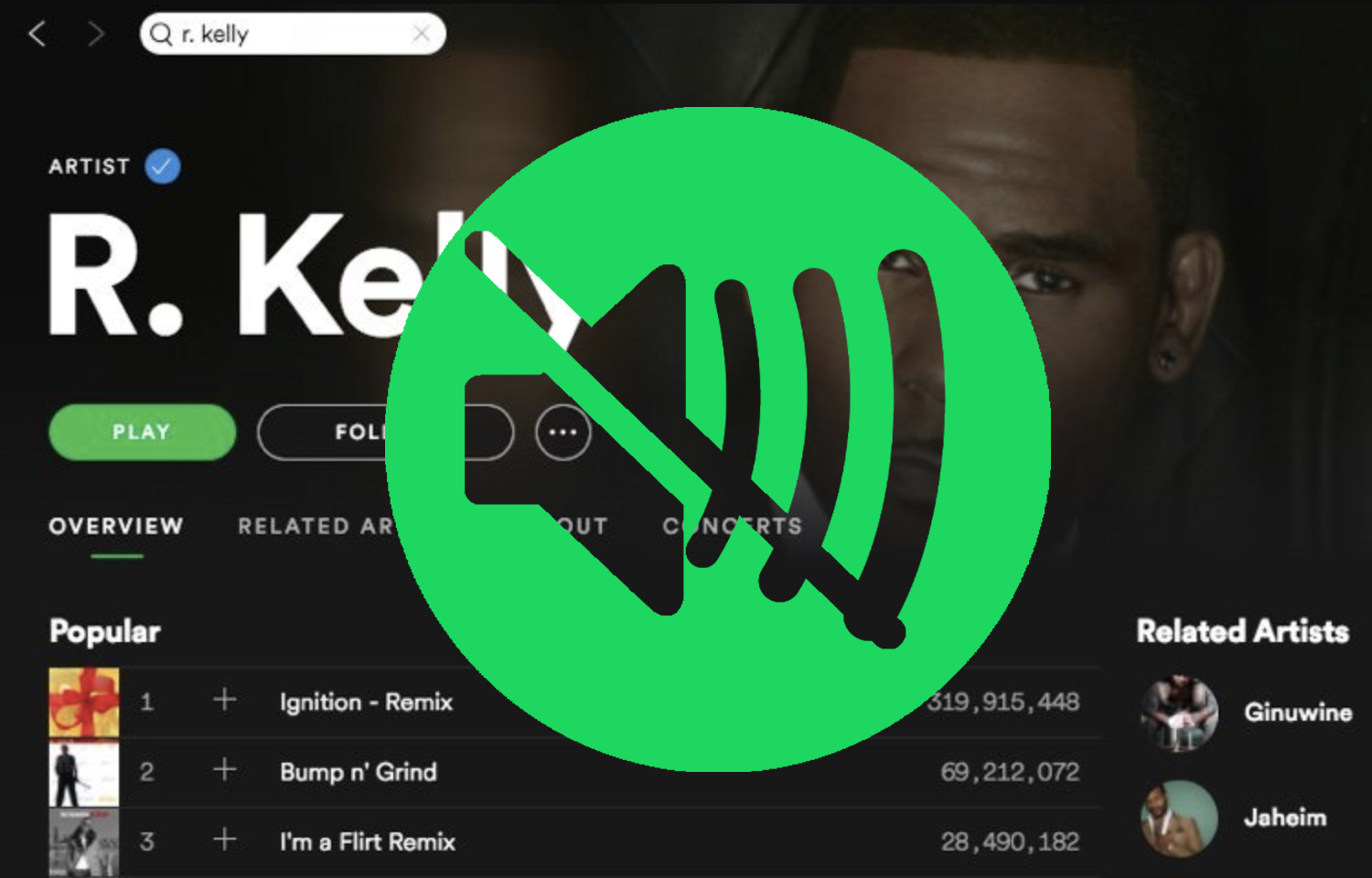Music editor Mikhail Hanafi discusses why the music industry still has a long way to go before the abusive actions of artists like R. Kelly can be silenced once and for all.
In late January 2019, Spotify began rolling out a new “mute” feature which allows users to essentially “block” specific artists from appearing on their Spotify app. This means that users won’t see muted artists in any of Spotify’s curated playlists; to see them again in the app requires users to actively unmute them in their settings. The feature is currently only available to a select number of users on the company’s iOS app.
Though many are applauding the company for the feature—Twitter is already bursting at the seams with jokes about muting unfavourable artists—most don’t realise that Spotify had already considered and rejected the idea before. In an online statement, Spotify had, “after serious consideration”, decided not to implement a blocking feature back in 2017.
what a fun feature… we can now mute trash. 10/10 update @Spotify pic.twitter.com/z2SXQXaW2w
— PatheticGirl143 (@domdomsunflower) January 30, 2019
The difference, almost a year and a half later, is the growing, #MeToo-fuelled public backlash against sexual predators. Spotify is essentially responding to user concerns about supporting problematic artists with the feature. Don’t like a particular artist? Mute them. It’s a step taken to address the pressures the company has faced in the current socio-political climate.

Most recently, the #MuteRKelly campaign led Spotify to remove the musician from its curated editorial playlists, though his music is still readily available on the service. Surviving R. Kelly, a recent six-part Lifetime documentary series borne from this campaign, detailed allegations of sexual assault and paedophilia against Kelly; it quickly became the network’s highest-rated programme in nearly two years.
Don’t like a particular artist? Mute them. It’s a step taken to address the pressures the company has faced in the current socio-political climate.
These allegations, though shocking, aren’t exactly “revelatory”; Kelly’s actions have been widely known for years. In 1994, at 27 years-old, Kelly illegally married then-15-year-old r&b singer Aaliyah. In the 2000s, Kelly faced a slew of child pornography charges, getting off on a technicality in one instance. Yet, despite these allegations, Kelly flourished, collaborating with the biggest names in music including Lady Gaga, who only recently pulled their collaboration ‘Do What U Want’ off online platforms.
His continued success even today, 24 years after he married a 15 year old 12 years his junior, is symptomatic of an industry which continues to enable problematic and abusive artists. Despite countless allegations throughout his decades-spanning career, many of which ended through big, out-of-court settlements, other artists continued to work with him, his label continued to promote him, and people continued to listen to him. Despite a history of abhorrent behaviour, Kelly was enabled and celebrated by the industry.
Over the years, what has become clear is that individuals in every step of the process need to take responsibility for the continued relevance of certain artists.
Artists like Chris Brown and the late XXXTentacion still have massive fanbases today despite the detailed, substantiated allegations of assault made against them. It’s impossible to claim ignorance about Brown’s brutal 2009 assault of Rihanna; the infamous photo of her battered, bloody face was everywhere the few months after. There exist audio clips of XXXTentacion purportedly confessing to physically abusing women. Still, Brown is featured on Spotify’s editorial playlists, and XXXTentacion continues to be splashed across the app’s home page with his posthumous releases.

Over the years, what has become clear is that individuals in every step of the process need to take responsibility for the continued relevance of certain artists. Record labels argue that it’s not their job to police behaviour. Distributors want to appear unbiased. Listeners try to separate the art from the artist. But when no one takes responsibility, then everyone is collectively at fault.
Spotify’s response to problematic artists has been unsatisfactory, to say the least. Their dropping of Kelly from editorial playlists is a step forward, but it’s clear this wasn’t a decision made on moral grounds; Brown and XXXTentacion are still on their playlists, despite Brown facing new rape allegations in January. Action was only taken against Kelly once the public backlash grew too big to ignore. The same thing happened with Kelly’s label, who only dropped him after the airing of the lifetime series.
In reality, the mute feature is Spotify’s way of side-stepping having to answer the difficult question of who does and who doesn’t deserve a platform on their service. It’s the equivalent of enacting environmental policy by shifting responsibility to the individual through banning plastic straws instead of implementing real, system-wide changes and taking corporations to task. In reality, everyone needs to do better. What message do we send when we continue to reward sexual predators and abusers with money and fame?
Mikhail Hanafi

